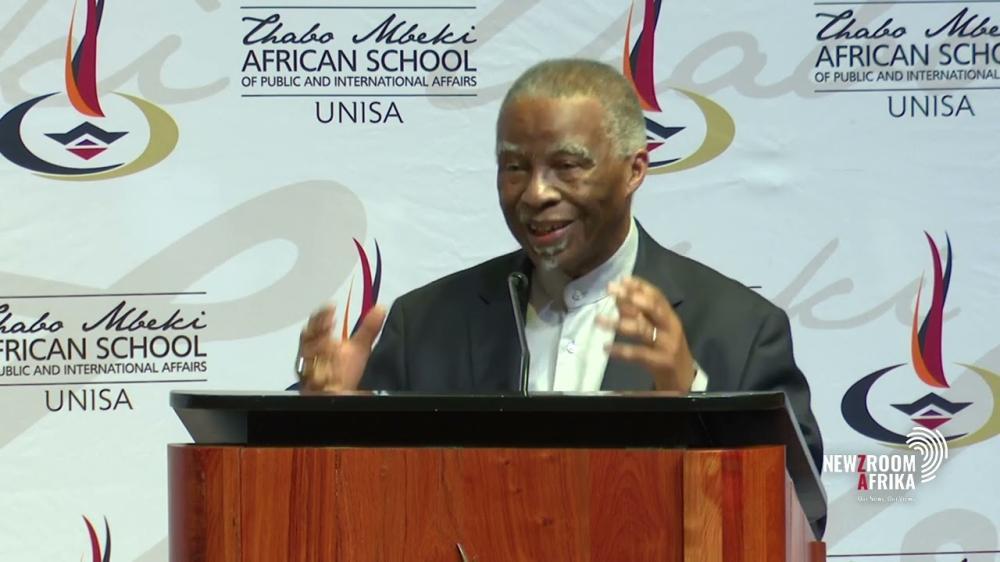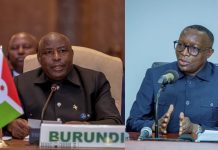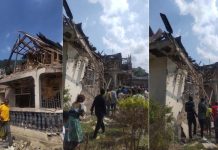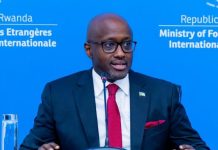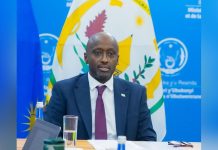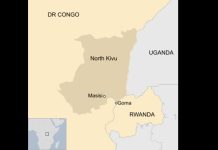Africa-Press – Rwanda. Former President of South Africa Thabo Mbeki has said the conflict in the eastern part of the Democratic Republic of Congo (DR Congo) stems from historical and ethnic complexities.
He was speaking to students and alumni of Thabo Mbeki African School of Public and International Affairs on March 13.
Mbeki reiterated that DR Congo inherited colonial boundaries, which included Rwandan-speaking populations in its eastern regions.
He said that, despite being Congolese according to the borders, they were not recognised as such, leading to tensions and the emergence of groups like the Mai-Mai, who sought to expel Kinyarwanda-speaking population.
“The problem for us and problem for the Congolese is that certainly even during the days of Mobutu, they did not want to recognise the Rwandese who were Congolese as Congolese,” said Mbeki.
“The Banyamulenge in eastern Congo, have for many decades felt that they don’t have the protection of the government in Kinshasa. So they need to protect themselves.”
Mbeki further noted that the issue persists due to the weak presence of the Kinshasa government, particularly in regions like the Kivus, where groups like the M23 rebels have emerged from the local population due to a lack of protection, adding that the arrival in eastern DR Congo of the perpetrators of the 1994 Genocide against the Tutsi in Rwanda only complicated matters.
The former president emphasised the importance of recognising the Banyamulenge as Congolese and providing them with government protection, as they are entitled to like any other Congolese population.
Calls on Congolese leadership take own crisis…
Mbeki further highlighted the need to understand the objective reality on the ground, rather than being swayed by popular slogans.
He said there is a need for Congolese ownership of the issue, noting the presence of armed groups like the Rally for Congolese Democracy (RCD), a political party and a former rebel group that operated in the eastern region of DR Congo, in past negotiations for the country’s future.
“The first challenge really to overcome is to get the Congolese to understand that this is a Congolese problem. It doesn’t originate from outside of the Congo. That’s a reality that was understood by the Congolese themselves. They didn’t say, RCD, you are not wanted here. So they were part of the solution,” he said.
Mbeki expressed concern over the factionalisation of the situation, recalling an incident where some Congolese rejected East African involvement, suspecting support for Rwanda.
He acknowledged Rwanda’s upcoming commemoration of the 30th anniversary of the Genocide against the Tutsi, noting that President Paul Kagame had extended an invitation to him. He said the commemoration was a significant occasion for Africans, citing the importance of reflection and drawing lessons from the past.
“I’ll be going there because I think, for us Africans, that’s an important anniversary to mark in order to address these issues about peace and stability on our continent,” he said.
For More News And Analysis About Rwanda Follow Africa-Press

